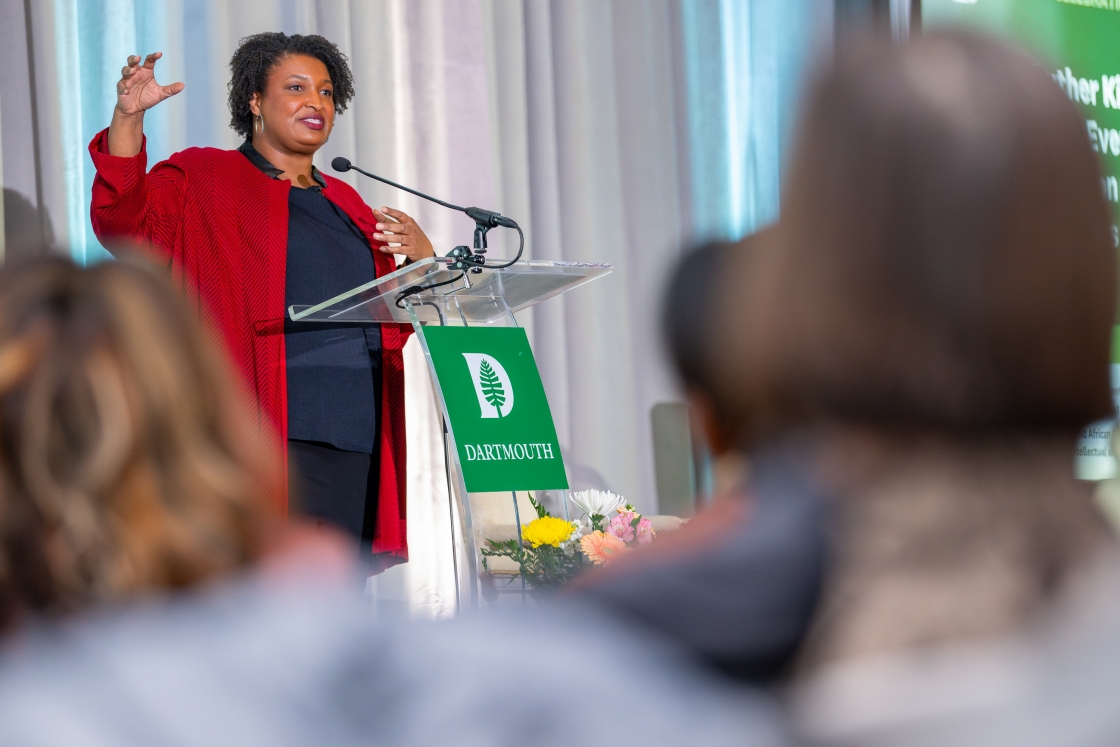Watch the March 28 symposium live on Dartmouth’s YouTube channel.
In the early hours of March 28, 1979, a valve problem in Unit 2 of the Three Mile Island nuclear power plant near Middletown, Pa., launched a chain of events that led to a partial meltdown—the worst nuclear accident in American history. Two weeks later, amid widespread anxiety, President Jimmy Carter empaneled a special commission to investigate the accident. He asked then-Dartmouth President John Kemeny to lead it.
On Friday, March 28, Thayer School of Engineering, the John Sloan Dickey Center for International Understanding, and Stanford’s Steyer-Taylor Center for Energy Policy and Finance will hold a one-day event, “Three Mile Island 35th Anniversary Symposium: The Past, Present, and Future of Nuclear Energy.”
Joseph Helble, dean of Thayer, says the symposium will bring together experts from government, industry, and academia, some of whom were involved in the Kemeny commission, to review and discuss the past, present, and future of nuclear energy nationally and internationally.
“Energy remains one of two core interdisciplinary areas of focused research and education at Thayer. Understanding the role that nuclear energy can play as a low-carbon source of power is an essential part of this effort,” Helble says. “We felt it was important to co-host this symposium, both to look back at TMI to remind us of the challenges nuclear technology has faced, and to consider the promise of developing technologies.”
Daniel Benjamin, director of the Dickey Center, notes that Three Mile Island had “a profound negative effect on the development of nuclear power in the U.S. But today—and this is after Chernobyl and Fukushima—nuclear energy remains an important part of the global energy equation and something that many policymakers are reconsidering because of how it can help reduce greenhouse gas emissions and climate change.”
Dartmouth’s connections with these issues are more than just historical. Dan Reicher ’78, director of Stanford’s Steyer-Taylor Center, is a cosponsor of the symposium. Reicher, who was an assistant secretary of energy in the Clinton administration and an adviser on energy and the environment to President Obama, started his career right out of Dartmouth as a legal assistant on the Kemeny Commission.
When he heard about the accident and Kemeny’s appointment, says Reicher, a biology major, he was drawn to the questions of environment, energy, and law raised by the accident. To land his spot on the commission staff, he waited in Kemeny’s parking spot behind Parkhurst, and when Kemeny appeared, Reicher asked for a job on the newly created commission.
Reicher will moderate the session, discussing “The Current State of Nuclear Energy,” which will include a senior executive from the largest U.S. nuclear utility, an official from the French atomic energy commission, and a leading nuclear policy expert.
Another Dartmouth alumnus, Winthrop Rockwell ’70, a partner with the law firm Faegre Baker Daniels, served as associate chief counsel on the Kemeny Commission. Rockwell will be one of the panelists speaking on the panel “Nuclear Energy’s Past.” He will be joined by a former member of the Nuclear Regulatory Commission at the time of the Three Mile Island accident, and Matt Wald, energy and technology reporter for The New York Times.
John Kelly, a deputy assistant secretary from the U.S. Department of Energy; Amory Lovins, co-founder and chief scientist for the sustainable energy think tank Rocky Mountain Institute; and U.S. Rep. Peter Welch, a Vermont Democrat who serves on the House Energy and Commerce Committee, will present keynotes.
Thayer Engineering Professor Charles Sullivan and Associate Professor of Economics Erin Mansure will moderate the final panel, “The Future of Nuclear Energy,” which will include an expert on the Chinese nuclear industry, a leading environmentalist with the Clean Air Task Force who has embraced nuclear power, and a top executive from TerraPower, an advanced nuclear reactor design company financially backed by Microsoft’s Bill Gates.
The symposium runs from 8:30 a.m. to 5:15 p.m. in Spanos Auditorium at Thayer. The event is free and open to the public.

